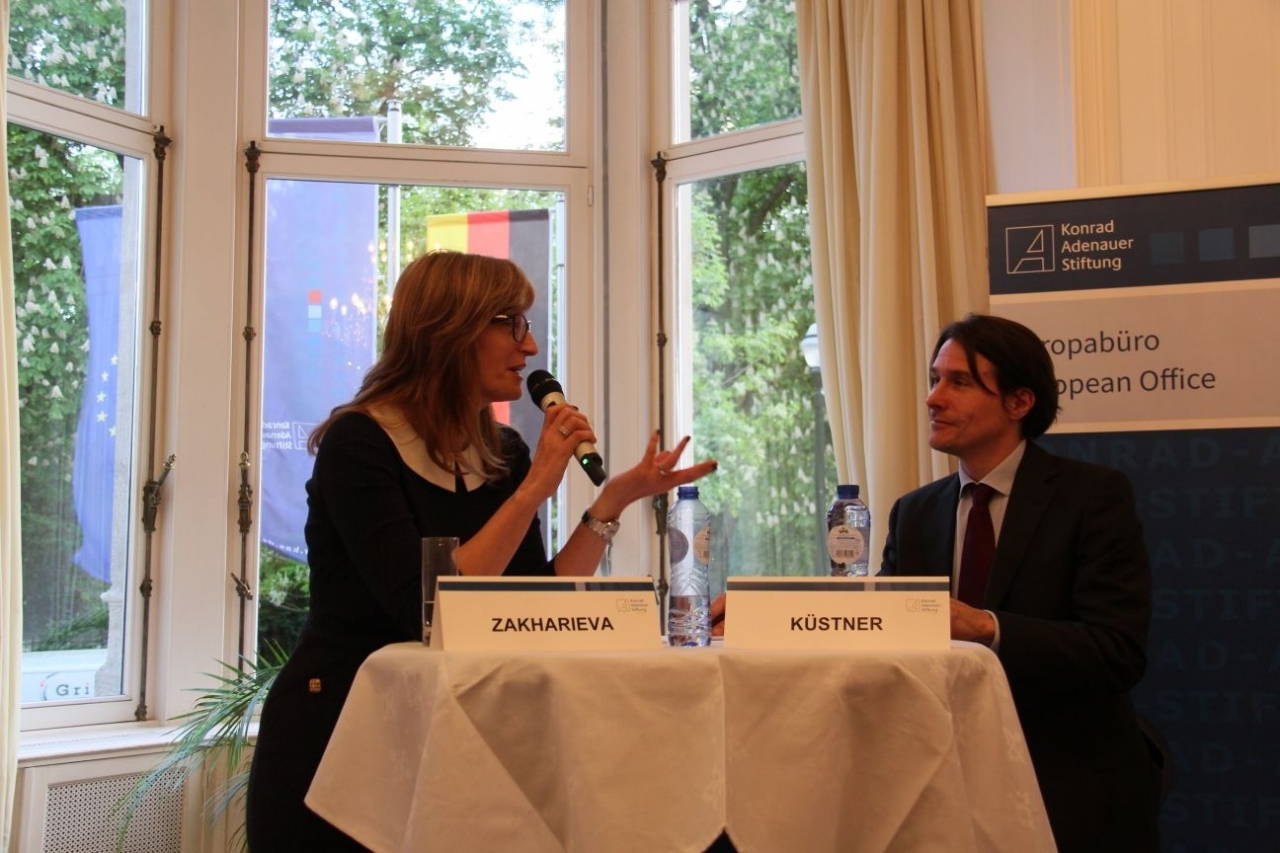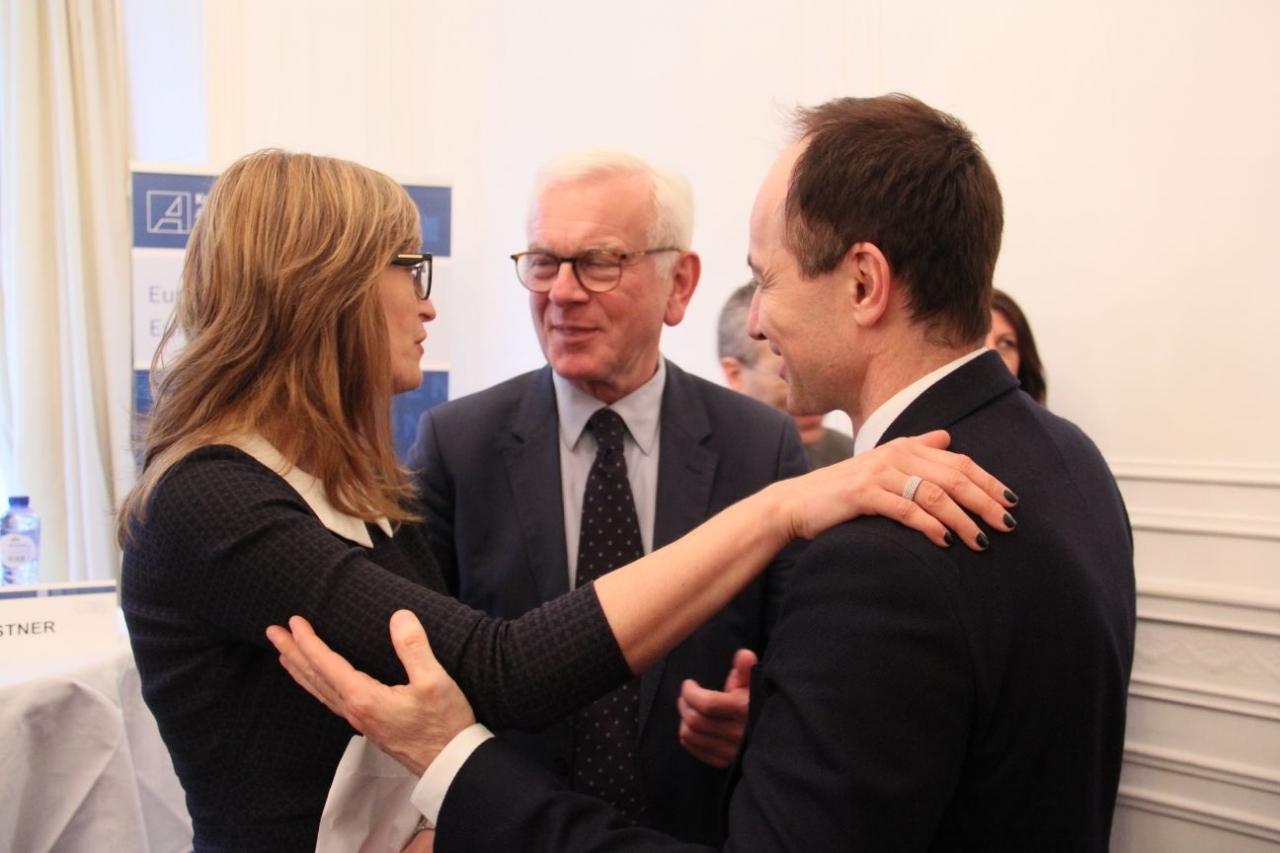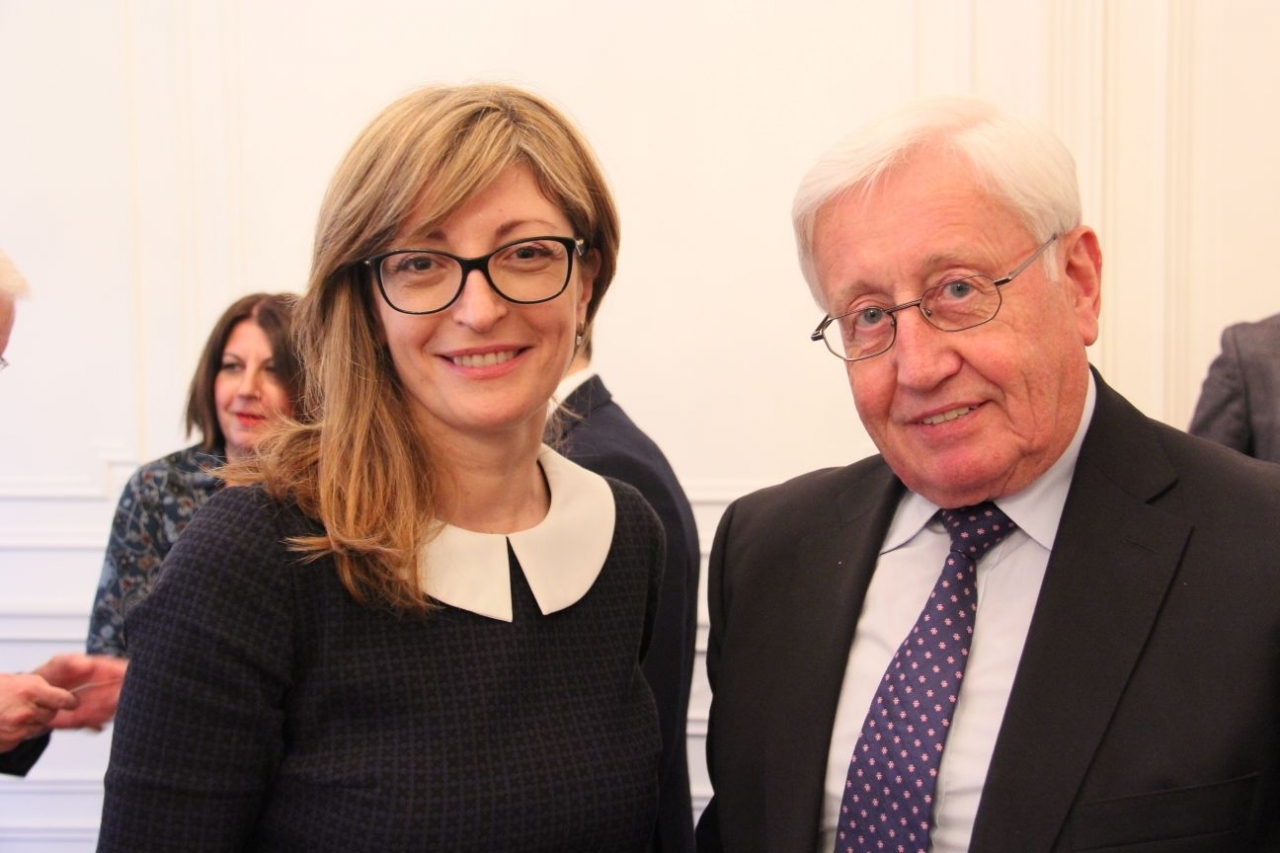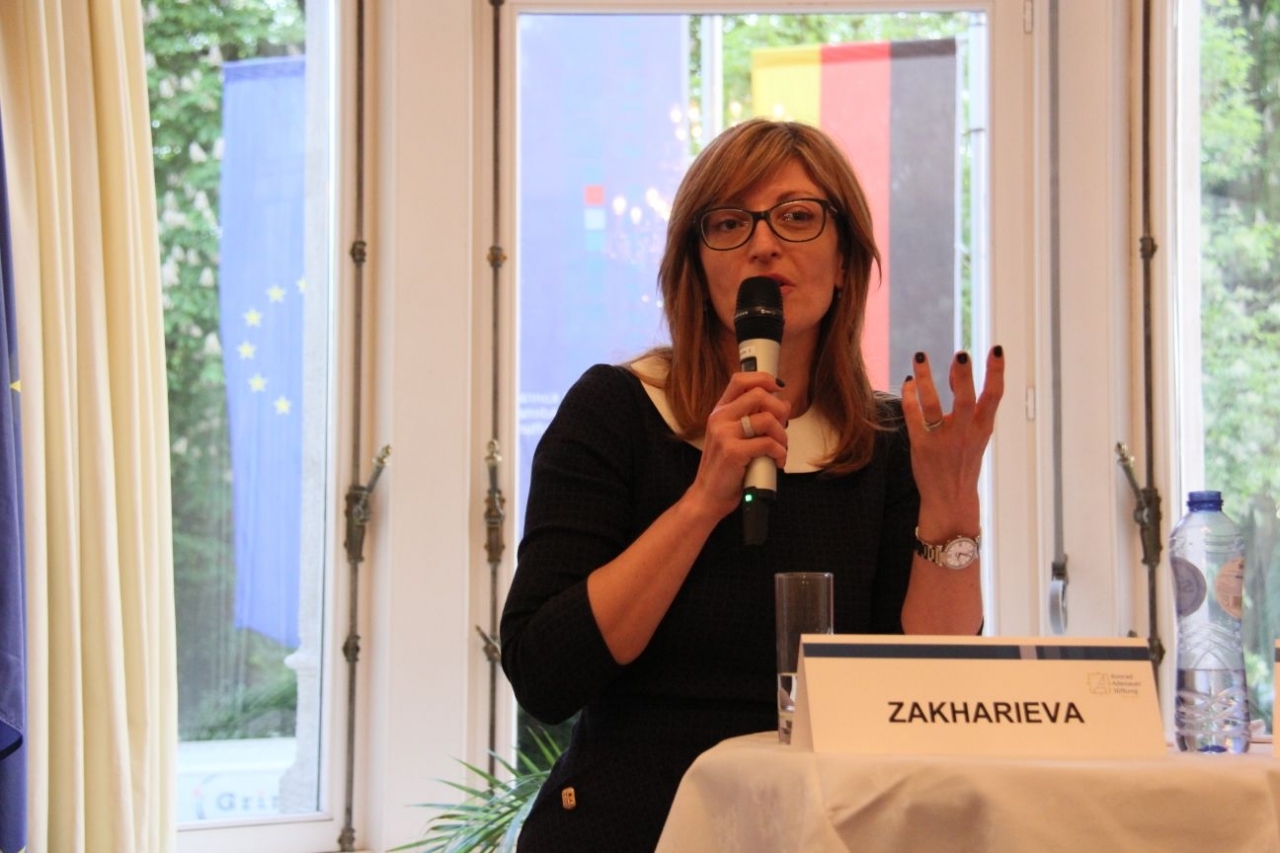Ekaterina Zaharieva: “Talking about the Western Balkans, We Should Think of What Brings Us Together Rather than of What Pulls Us Apart”
27 April 2018 News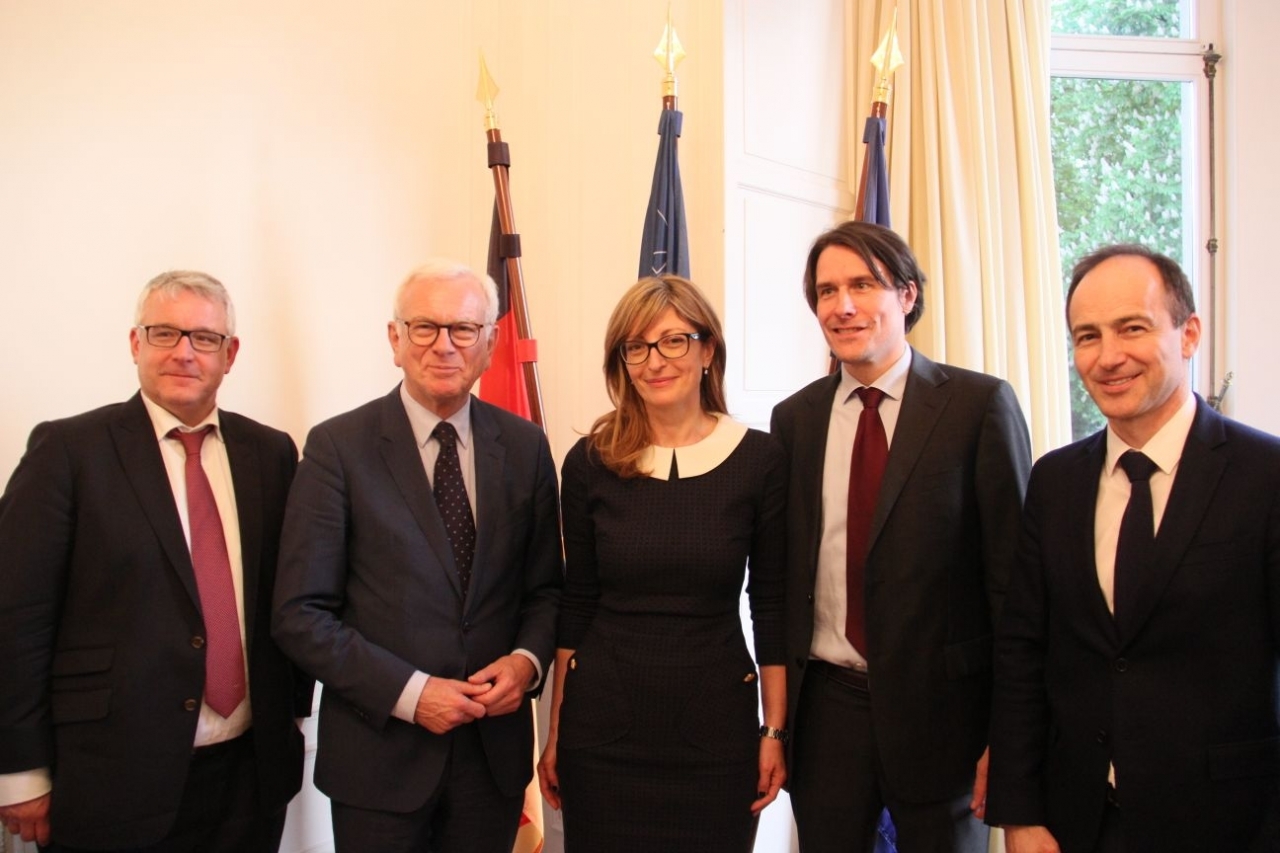
Minister Zaharieva presented her vision of the future of the Western Balkans at a discussion organised by the Konrad-Adenauer-Stiftung in Brussels on 26 April.
The topic of the event was “Imagine the New Western Balkans”. “Bulgaria is a centre of stability in the Balkans and a very important partner for the EU,” Dr Hans-Gert Pöttering, former Chairman of the Foundation, emphasised in his opening statement at the discussion. The German politician thanked the Bulgarian Government, Prime Minister Borissov and personally Minister Zaharieva for their strong and consistent policy of commitment to European values.
Taking the floor, Deputy Prime Minister Zaharieva shared her view that the joint efforts of the European Union and the Western Balkan countries can make the region stable and prosperous. Organising more frequent meetings at the EU-Western Balkans level is a positive step in this direction, she stressed. “The summit in Sofia on 17 May is the first one in 15 years. It is not normal that our meetings with neighbours, some of which are already negotiating about membership, should be spaced so wide apart,” Minister Zaharieva said.
The history of the Balkans has not been easy. Even today, there are still open issued between some of the countries, and more efforts are needed to carry out the necessary reforms and build stability and security, Ekaterina Zaharieva added in her statement. “Over the last eight months I toured the region three times and saw for myself the will of those countries’ governments to implement genuine and productive reforms. Indeed, the political leaders of the Western Balkans already have great expectations, but the expectations of their own citizens are undoubtedly the greatest,” the Bulgarian Foreign Minister pointed out. Zaharieva was adamant that the European perspective of the region must become an irreversible process not only for the EU but for the Western Balkans as well.
“When we see a heap of stones, our first thought is not to throw them but to use them as building blocks of bridges. In my opinion, when we think and speak of the Western Balkans, we must focus on what brings us together rather than on what pulls us apart,” the chief Bulgarian diplomat argued during the discussion.
In her words, the present moment is crucial for the enlargement process. The Commission’s recommendation to start negotiations with the Republic of Macedonia and the Republic of Albania marks just the beginning of the enlargement process. This, however, gives the EU much more opportunities and instruments to support the countries along their European path, Deputy Prime Minister Zaharieva commented. She expressed the hope that a decision on the start of negotiations with the two countries will be adopted in June.
Stressing the importance of the reforms that all six Western Balkan countries must implement, Zaharieva highlighted the significance of this process for the youngest segment of the region’s population. Youth unemployment in those countries stands at 55-60 per cent, the Deputy Prime Minister added, noting that Bulgaria was faced with a similar issue some years ago, but now the trends are favourable. She said that last year alone 24,000 young people returned to Bulgaria.
“I am pleased that the Commission’s Strategy provides for funds not only for education but also for start-up companies and job creation. Such fast-track measures can help us combat youth unemployment,” Ekaterina Zaharieva stated, replying to a question.
Minister Zaharieva singled out connectivity both between the countries in the region and between the region and the rest of Europe as yet another important aspect of the future development of the Western Balkans. “This is the topic we have chosen for the Sofia Summit. This is not an enlargement format. I am convinced, though, that this summit is the easiest way for the EU to demonstrate the visibility and its commitment to the region,” the Bulgarian Deputy Prime Minister emphasised.
In conclusion, she added that it is Bulgaria’s ambition to have an annex to the Sofia Declaration to formulate specific project ideas building on the six flagship initiatives of the Commission’s Strategy.

